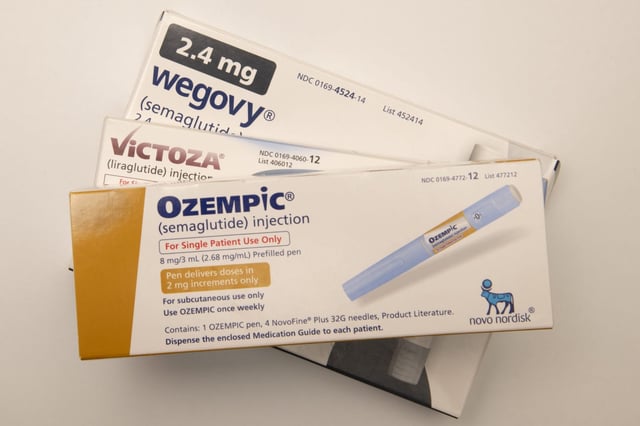Overview
- GLP-1 agonists like Ozempic and Wegovy not only aid in weight loss but may also reduce the risk of heart disease and cancer.
- A recent survey found that only 20% of large U.S. companies include these costly weight-loss drugs in their health plans, raising concerns about widening health disparities.
- Compounded versions of these medications, which are not FDA-approved, provided a lower-cost option during shortages but face discontinuation as supply normalizes.
- Patients like Janet McCaskill, who relied on compounded drugs due to high costs, now face uncertainty about continued access to affordable medication.
- Experts emphasize the importance of following dosing schedules and maintaining a balanced diet and exercise routine when using GLP-1 drugs for effective results.


